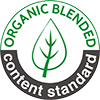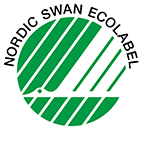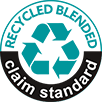Logged in as:
OUR AIM: DO GOOD _ AND KEEP IMPROVING
We never send a logo to the printers and get a box of t-shirts in return. In fact, making our products is a lot like building Volvo vehicles.
Only the best materials from the finest sources will do.
And we exclusively choose partners that share our care for the world we live in, treat their staff fairly and supply products that meet the highest Volvo standards.
100% GENUINE IN EVERYTHING WE DO
We share the same core values -quality, safety and environmental care - as the
Volvo brand. This is shown in how we design, source, manufacture, pack,
supply, deliver and even recycle our products. Naturally, we follow Volvo
Group’s code of conduct and we expect our suppliers to do the same.
YOU CAN FIND THE APPLICABLE
VOLVO GROUP POLICY DOCUMENTS HERE >

OUR ACTIONS MAKE US BEAUTIFUL
It’s one thing to talk the talk, but we make sure to always walk the walk as well. And we wouldn’t dream
of taking any shortcuts. Here are some examples of how this philosophy is translated into real actions.

WHENEVER POSSIBLE—WE GO ORGANIC
We love organic cotton. In part because the manufacturing requires less water and leaves a smaller footprint, but we also treasure how it’s farmed without pesticides and fertilizers. This directly benefits the health of factory workers and wildlife, and preserves biodiversity. It also lessens the risk of hazardous chemicals entering the soil and waterways and eventually end up in our food and drink.

RECYCLED COTTON MIX – REGENERATING COTTON WASTE
We strive for new and innovative ways to reduce emissions and footprints. Cotton spin waste has previously just been thrown away to be used as landfill but now it can be recycled and used again. The challenge with recycled cotton has always been that the fiber gets very short and weak after being recycled. So, to make finer yarns, recycled fibers are blended with virgin organic cotton fibers, that will gain the strength back. Since the fibers are both organic and recycled, as well as 100% natural, we are proud to say this is currently the cleanest and most sustainable way to produce a garment.

RECYCLED POLYESTER – MAKING GOOD BETTER
No wonder we want to see as many bottles as possible transformed into clothing that you want to wear. The production of the PET (polyethylene terephthalate) material need crude oil and natural gas extracted from the Earth. Luckily the material can be recycled again and again. The fibers of recycled polyester from post-consumer waste have the same technical performance as the newly made polyester. The production requires 70% reduced carbon footprint compared to virgin polyester. It also decrease the amount of plastic post-consumer waste that enters landfills that takes thousands of years to break down, and can leach toxic chemicals into the Earth. Simply a great way of making good products be even better.

WE TRUST NATURE TO FINISH OUR LEATHER
We demand that all our Italian full-grain premium leather products are vegetable-tanned. This ensures that they are free from Chrome VI, a toxic substance that cause allergies, rashes and inflammatory skin reactions. The animals are treated respectfully too. We require all suppliers to follow the OIE (The world organization for animal health) rules, abide by REACH regulations for animal testing and adhere to the UNIC standard of Italian leather producers.
OUR CERTIFICATIONS
In addition to meeting or exceeding the CSR standards of Volvo Group,
some of our products have been independently certified by these well-reputed, third-party organizations.

GRS – GLOBAL RECYCLE STANDARD
Products carrying the GRS symbol contain at least 20 % recycled material and live up to tough requirements throughout the entire supply chain. In addition, the producer of these must track and trace material, take social and environmental practices into account, and restrict the use of harmful chemicals. This standard also makes labeling more accurate and encourage innovative ways of using reclaimed materials (which is sweet music to us). Read more:GRS website.
READ MORE: GRS WEBSITE

GLOBAL ORGANIC TEXTILE STANDARD
Products with this certificate must include at least 70 % organic fibers and meet strict environmental, social and toxicologic criteria. For instance, dyestuff, auxiliaries and accessories are all scrutinized —and wet-processing units must have a functional waste water treatment plant. GOTS is the leading standard for textiles made from organic fibers and a clear proof that our high-quality products are also consciously produced.
READ MORE:GOTS WEBSITE

FOREST STEWARDSHIP COUNCIL
We’re delighted to see the FSC logo on our packaging as it’s the gold standard in forest certification. We need to use forest products, but must also protect the forests for generations to come. This is where FSC comes into play and dictates what responsible forest management is all about. The fact that we’re allowed to use this symbol is a clear sign of how our forest products are processed, manufactured and distributed with the utmost respect for the environment.
READ MORE:FSC WEBSITE

THE ORGANIC CONTENT STANDARD (OCS)
OCS blended certification ensures that a product contains 5-94% of organic material, verifying the accurate representation of organic and non-organic components. Further, OCS tracks the flow of raw material from its source to the final product.
READ MORE:TEXTILE EXCHANGE WEBSITE

NORDIC ECOLABELING
We’re delighted to see the Nordic Swan Eco label on our packagings. Certification with the Nordic Swan Eco label ensures adherence to rigorous environmental standards throughout your product's lifecycle, including strict criteria for chemicals. Ongoing tightening of requirements promotes sustainable development, and the label certifies that all criteria are met before approval, bolstering your product's commitment to eco-conscious practices.
READ MORE:NORDIC ECO LABELING

RCS – RECYCLED CLAIM STANDARD
The Recycled Claim Standard (RCS) is used as a chain of custody standard to track recycled raw materials through the supply chain. The standard was developed through work done by the Materials Tracability Working Group, part of OIA's Sustainability Working Group. The RCS uses the chain of custody requirements of the Content Claim Standard.
READ MORE: TEXTILE EXCHANGE WEBSITE
















